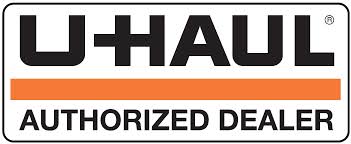Did you know that Americans are keeping their cars longer than ever before? As of 2015, the average age of a vehicle being driven on the roads and highways of this great country is 11.5 years according to published reports from IHS Automotive. That’s up from 2009 when the average vehicle age was 9.4 years…. Read more »
Posts By: jmccollough-admin
Basic Facts About Automatic Transmissions
This offers a little information that applies to everyone about their car or truck. The automatic transmission should be serviced at regular intervals, if maximum operational economy is to be realized. Industry authorities recommend that the fluid and the filter (if it’s a “disposable type”) should be changed every 3 years or 36,000 miles- whichever… Read more »
How to Check Engine Oil
Place your car at the level spot. Stop the engine. Wait for a while to let the engine oil to pour down to the oil pan. Pull the engine oil dipstick. If you don’t know where is the engine oil dipstick, check your owner’s manual, usually it has a bright handle saying “engine oil”. Wipe… Read more »
How to Check Automatic Transmission Fluid
Place your car at a level surface and engage the parking brake. Start the engine. Set transmission shifter in “P” (Park) position, and let the engine idle (on some cars this procedure may be different, check the owners’ manual for details). Pull the transmission dipstick. Check your owners manual to find where transmission dipstick is… Read more »
How to Check Engine Coolant
Low coolant level will cause engine overheating, which may cause serious damage to the engine. How to check the engine coolant level: The coolant level should be between “LOW” and “FULL” marks in the coolant overflow tank as in the picture. If it’s lower, top it up. If there is no coolant in overflow tank… Read more »
Checking Your Tires
Check the tire pressure regularly – at least once a month. If you don’t have tire pressure gauge it’s really worth to buy it. You can find recommended tire pressure in the owner’s manual or on the tire pressure placard. The maximum pressure listed on tires is NOT the proper pressure! Refer to the owner’s… Read more »
CV Joints and CV Boots
Most of modern vehicles are Front-Wheel-Drive, and they all have CV-joints (Constant Velocity joint) used to transfer the engine torque to the front wheels. The CV-joint is greased inside and sealed by a rubber boot that unfortunately, tend to break sometimes. If the CV-joint boot breaks, the grease comes out, the dirt and water comes… Read more »
Taking Care of Small Problems
As soon as you feel there is something wrong with your car like any kind of irregular noise, vibration, shimmer, or you note some leak or any warning light comes on while driving or anything that seems to be irregular – have your car inspected at a dealer or a garage as soon as you… Read more »
Regular mechanical inspection
For your safety, I recommend to have your car inspected regularly, at least once a year, by a mechanic. I mean not just visual inspection by one of the fast lube places, but a mechanic that can lift your car and check major components such as brakes, suspension, etc., while having your tires rotated, for… Read more »



